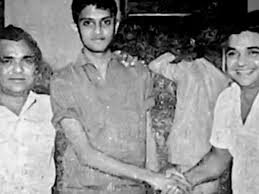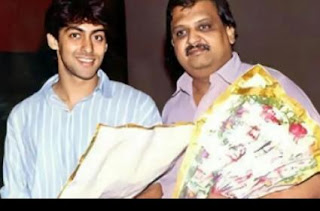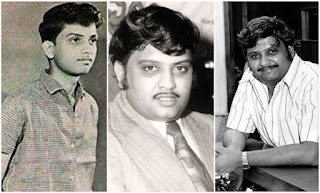PART 6 OF 10: THE GOLDEN AGE
The term "Golden Age" has its origins in Greek and Roman mythology and is perhaps maligned in its casual overuse, especially in the filmy context. Many a superannuated artiste and film technician have tried to usurp that moniker for the era that they had peaked in.
The Greeks had referred to the Golden Age to mean a mythical age of harmonious utopia, where everyone lived a virtuous life like MGR (of his movies). The gods and humans freely co-mingled and were often indistinguishable. Hindu mythology had an equivalent for it called the "Satya Yuga".
When scribes and historians ascribe a certain period as a golden age, they are probably thinking of a few things: convergence of talents, great partnerships, and memorable creative output that stands the test of time. For example, the 1950s and 60s are called the Golden Age of Hindi Film music because great music composers, singers, lyricists, actors, and directors descended into Bombay at almost the same time and produced peerless music (and movies) year after year, that have no match till date. At least, in my opinion.
It is also my opinion that this happened to the Southern music scene roughly between 1980 and 1990. While there were a plethora of composers and singers that led this glorious revolution in the South, Ilaiyaraja and SPB were its posterchildren. The rustic chronicles of Bharathiraja, the understated sensibilities of Mahendran and Balu Mahendra, the cultural theatricality of K Viswanath, the disco potboilers of Rajnikanth and Chiranjeevi, the gritty neo-realism of Mani Ratnam and Ram Gopal Varma, and the amplified sentimentality of R Sunder Rajan, P Vasu, and the innumerable curators of mediocre cinema; all provided a fecund canvas for Ilaiyaraja and SPB to demonstrate their ingenuity and versatility. They dominated South Indian film music like no one else before. Balu recorded an average of 5-10 songs a day - he ostensibly set a Guinness record by recording twenty one songs in a day for Kannada composer Upendra Kumar. Ilaiyaraja composed music for about forty or fifty movies a year, consistently between 1980 and 1990. Between them, they recorded over two thousand songs. Most of them were chartbusters, and are celebrated as bona fide classics even today (while the movies themselves have aged like Vyjayanthi Mala).
It was also the period when Yesudas, S Janaki, Jayachandran, Malaysia Vasudevan, MG Sreekumar, Chitra, Mano, Jency, and several others were at their very best. Ilaiyaraja catapulted to his musical zenith and emerged as a veritable one-man industry in Tamil. Balu was at his destructive peak and virtually had no competition. His soulful voice was at its crispest. And it only seemed to get better with time. Every song he touched turned to gold: whether it was a mellifluous solo for Mohan, a self-glorifying introduction number for Rajnikanth or Chiranjeevi, a semi-classical melody for Vishnuvaradhan or Sivakumar, or a romantic duet for Kamal Haasan, Venkatesh, Karthik, or Nagarjuna. He was unstoppable.
He hardly forayed into Hindi between 1982 and 1989 perhaps because he did not have the time (till Raam-Laxman rediscovered him with 'Maine Pyar Kiya'). It was not as if national recognition was eluding him during this time. He bagged his third and fourth national awards for 'Sagara Sangamam' and 'Rudra Veena' (both Ilaiyaraja classics) and won a clutch of state and Filmfare awards. For the top notch fare that he produced with Ilaiyaraja, he should have won every conceivable award between 1980 and 1995. But that's perhaps the fanboy in me speaking.
I want to feature an SPB-Ilaiyaraja classic set in the raga Hamsanandhi from the movie 'Sagara Sangamam', with lyrics by the ever-reliable, Veturi Sundararama Murthy. Balu won a national award for this song. K Viswanath's artful use of this song to set the stage for the climactic scene for 'Sagara Sangamam' is pure cine-magic . Balu starts with an incredible crescendo of swaras, a good octave-and-a-half higher than his comfort zone. Ilaiyaraja uses the same evening raga that he had used to telling effect in an earlier hit, 'Raathiriyil poothirukkum' but to capture a completely different emotion this time. K Viswanath shows the torment of the danseuse (SP Shailaja) that had previously demeaned her mother (Jayaprada) and her guru (Kamal Haasan) for having an illicit affair, only to realize at the end how wrong she is. The guru, underappreciated all his life, quietly passes away in plaintive fulfillment witnessing "his" first (and last) stage performance through the dance of his newly found protégé. It is vintage Viswanath and classic eighties drama, All of it depicted through Ilaiyaraja and SPB's musical wizardry.








Comments
Post a Comment